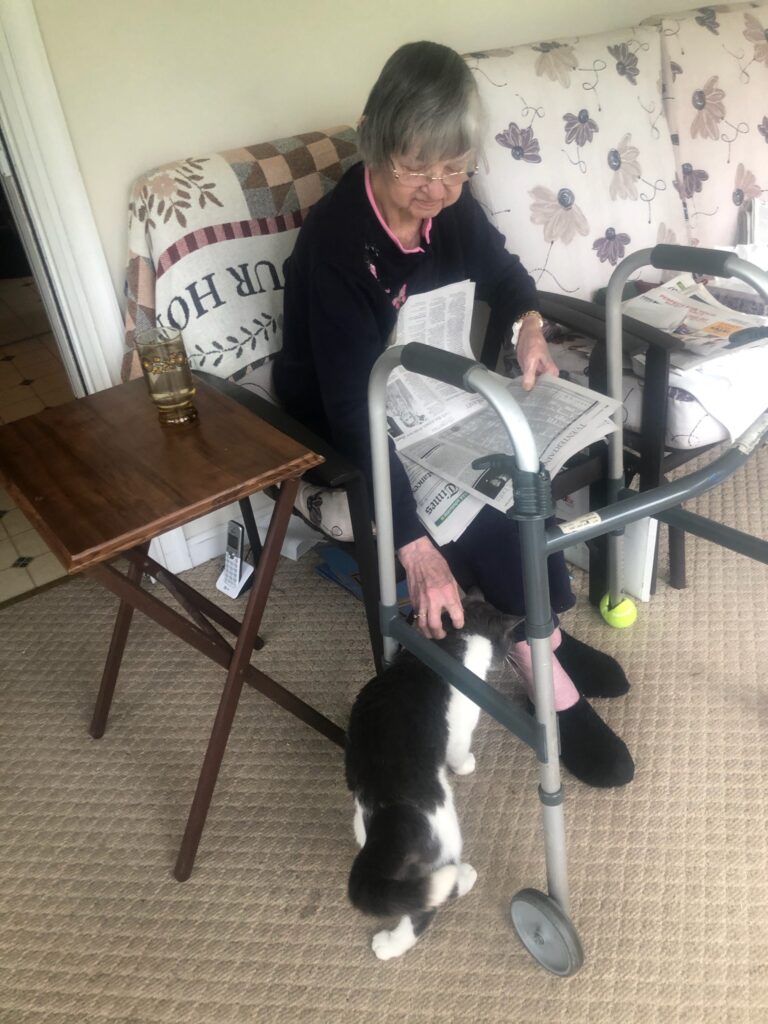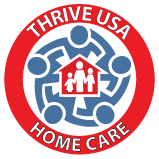Health Benefits of Pets for Seniors
Many family caregivers know that the seniors they care for may suffer from loneliness and depression, which can lead to long-term physical health problems. But did you know that you might be able to get some relief from this loneliness at the local animal shelter or pet store?
American pet owners adore them! According to recent surveys, there are pets in two out of every three American homes, a 20% increase in the last thirty years.
The health advantages of dogs for seniors and the outpouring of love for our furry friends are real and long-lasting, according to medical studies.
6 Benefits of Pets

- Healthy behavior habits. Elderly adults who own a pet will develop a routine, therefore, feel more confident completing daily tasks.
- Improves activity. Senior adults will have the opportunity to increase their physical activity and exercise frequency by walking or playing with a pet.
- A sense of purpose. Having a pet gives the elderly a reason to get up in the morning, enhancing their mental state.
- Increases interaction. For elderly adults who own a dog, walking them regularly increases the opportunity to socialize with other dog walkers or neighbors.
- Relieves stress. Pets help increase the levels of serotonin (feel-good hormones) and calm anxiety.
- Companionship. Pets can be a source of affection and discussion for older people, giving them a sense of connection and companionship.
Senior individuals may start to feel increasingly isolated from those around them as they age. There may be fewer opportunities to visit with loved ones and friends, which might increase feelings of loneliness. Therefore, having a pet can improve fitness, reduce stress, and make an older loved one happier. If you believe your senior adult would benefit from having a pet, you should consider all of the questions that should be answered before they welcome one into their home.

Questions to Consider Before Adopting a Pet
- Can they deal with change? Your senior loved one may not be able to change their daily routine to accommodate getting a new pet and all the responsibilities that entails if they are set in their ways.
- Have they experienced pet ownership? Taking on the responsibilities of a first-time pet owner may be too much for an older senior.
- How to pick the right pet? To make sure the animal is the ideal match for your elderly loved one, it’s important to research the age, temperament, size, and energy level of potential pets.
- Are they financially stable? If your senior loved one is on a fixed income, it would be good to calculate the expenses to avoid the pet becoming a financial burden. Pet care can be expensive.
We now know that having a pet is very beneficial for seniors, but an older pet is usually always a better option because young animals, such as puppies, kittens, etc., require more care.
Consider adopting from an animal shelter or rescue since they might sell older pets at a discount. Additionally, a shelter or rescue for animals can assist in finding a pet whose temperament complements your senior’s personality and way of life. But the ultimate choice for adopting the perfect pet depends on the connection with the animal.
While there are many challenges to think about when considering adopting a pet for your loved one, there is overwhelming evidence of the health benefits of pets for seniors. Adopting the right companion pets for seniors can help your loved one enjoy life more.
Get In-Home Support
Thrive USA Home Care can give you the support you need to provide the best care for your loved one. Request a personalized price quote from Thrive USA Home care.
We’re Hiring!
If you have a heart for service and you make it your mission to help others have their best day, consider joining our team for senior home care. If you’re interested in a career with Thrive USA and live in Maryland, contact us today.


